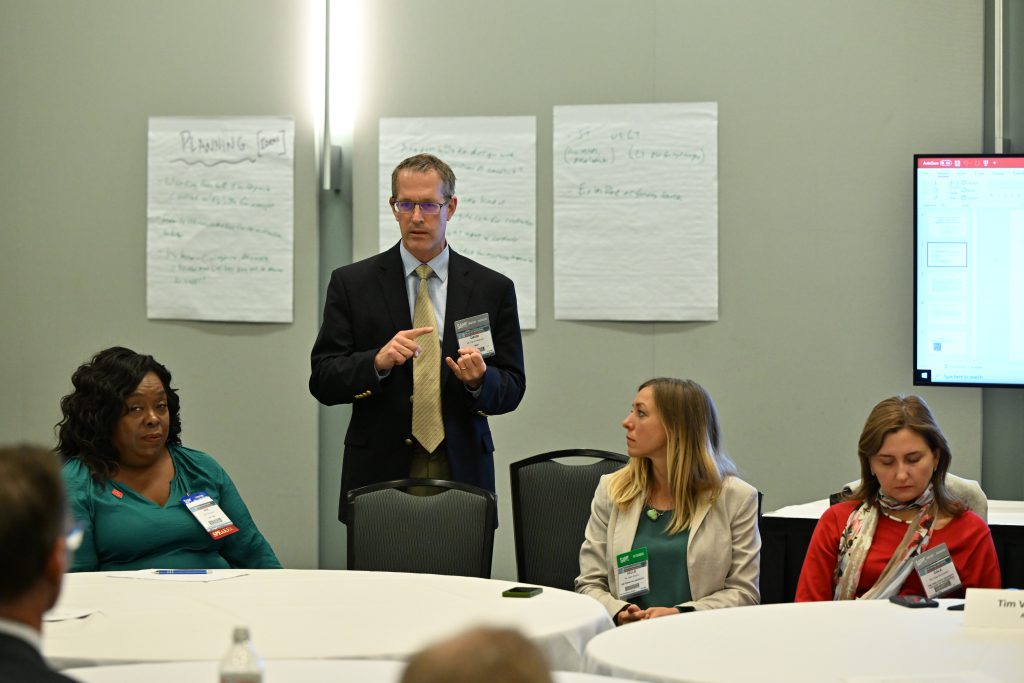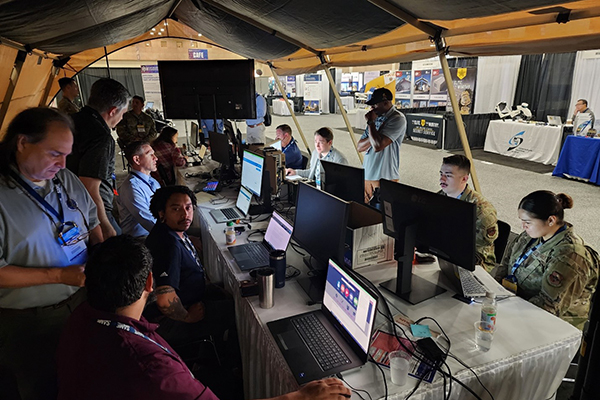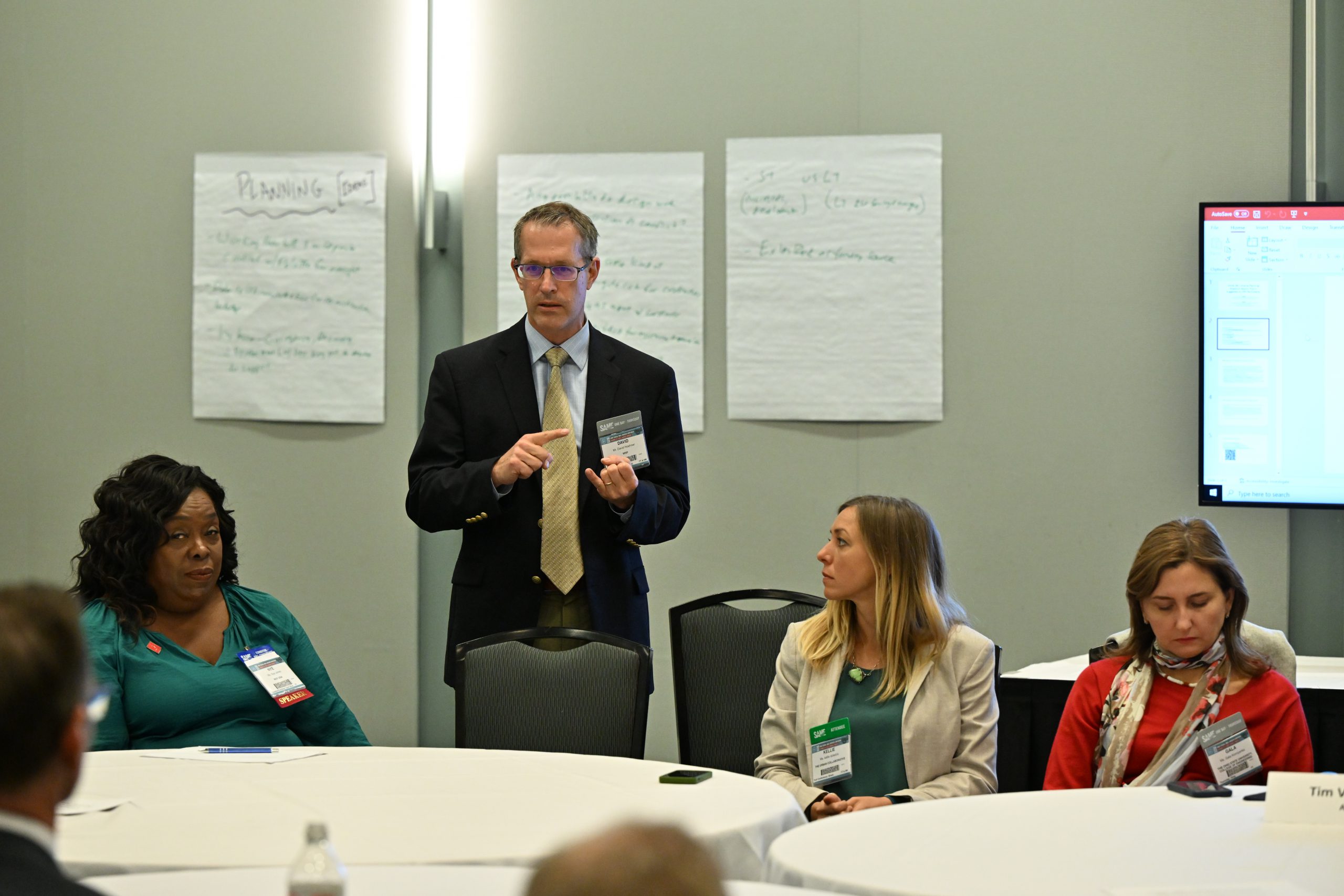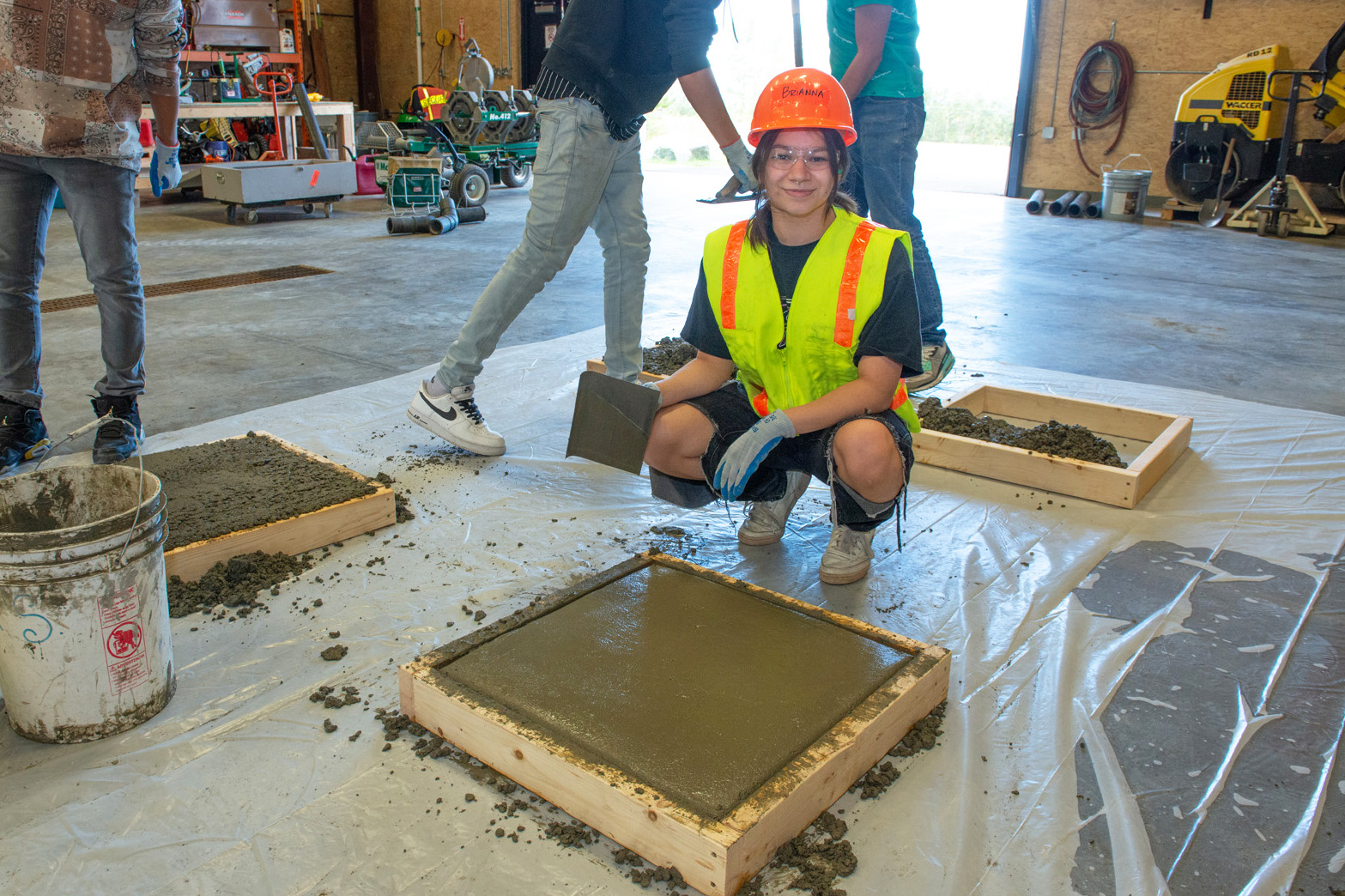By Col. William Haight, P.E., F.SAME, USA (Ret.) and Col. Blair Schantz, CCM, PMP, F.SAME, USA (Ret.)
In February 2022, as Russian forces invaded Ukraine, devastation quickly befell infrastructure and facilities across the nation. Soon after, at SAME’s 2022 Capital Week in March, the former U.S. Ambassador to Ukraine, William Moser, gave a passionate presentation in which he challenged SAME to organize A/E/C firms to prepare for the eventual reconstruction from the worst destruction of facilities and critical infrastructure in Europe since possibly World War II.
The presentation resonated with the JECO Community of Interest. Members immediately sought out guidance on forming a group to address the challenge and support the reconstruction. While too early to talk Ukraine reconstruction details, many SAME member companies know first-hand what to expect from prior reconstruction experiences in post-conflict areas. Advanced planning and coordination between government and industry are essential to mission success.

POSITIONING FOR FUTURE NEEDS
The JECO Community of Interest planned a modified table-top exercise on Ukraine Reconstruction as part of the 2022 Federal Small Business Conference in Nashville, Tenn. The team assembled a host of panelists from government and industry to address both current efforts and future planning for Ukraine to educate members on opportunities to assist in the eventual recovery. The exercise was set up as a one-hour presentation, followed by three breakouts to dive deep into different aspects of the conflict and reconstruction.
The panel featured four Ukraine subject matter experts from the U.S. Agency for International Development (USAID), the American Planning Association, the Department of Energy, and the Department of State. This group provided insights on how their organizations were approaching the crisis and positioning to provide assistance when conditions were ready for reconstruction. Afterward, members broke into three groups to allow for further discussion, questions, and insights.
Reconstruction Planning and Execution Structures. The first half of this breakout session focused on the U.S. government and USAID’s approach to Ukraine reconstruction. The discussion recognized early on that this recovery will be different than in Afghanistan (which needed a new government to be stood up and had limited technical capacity). Ukraine has a strong functional government with high technical capacity. The scale of the rebuilding needs will be on a “mega scale.”
Donors and implementers need to be supportive of a Ukraine-led reconstruction effort—providing technical support to fill the gap created by the massive needs. USAID is responsible for financial support, working with the World Bank to help provide oversight at the ministry level, and has an active U.S. government contract for third-party oversight.
The second half of the session was led by the American Planning Association. There is a need to draw a distinction between the planning a planner does and the planning involved in project execution. Ukraine will require a strategic plan to ensure that all efforts are coordinated, synchronized, and supporting the vision for the country. Rebuilding will require a methodology to integrate planning across all sectors and between levels of government. The European Community, World Bank, and Ukrainian government have initiated the early phases of planning. It would be prudent of the U.S. government and A/E/C community to stay engaged and participate in advanced planning until the environment allows development to go forward.
UXO, Demining, and Security. This session discussed the layout of Ukraine explosive ordnance disposal forces and the requests received from the government of Ukraine.
The Department of State currently has an active contractor in Ukraine performing humanitarian mine action activities and is providing liaison, mentoring, and training to eight clearance teams and Explosive Ordnance Risk Education teams. Session leads also addressed logistics and small business challenges.
Remote Sensing for Physical and Human Landscape. This discussion focused on the abundance of geospatial information and services and the need to coordinate and focus the reconstruction community operating environment. This will help reduce the potential for redundant effort and information paralysis, identification of key stakeholders, their engineering-centric requirements, and open-source resources.
With the ongoing conflict and lack of access to many areas in eastern Ukraine, remote imagery analysis is the only feasible way to conduct damage assessment and start recovery scoping and planning. The group recommended the U.S. government develop a centralized location and data platform for use by the State Department, USAID, Department of Transportation, and coordination with potential contractors and donors.
RESPONSIBILITY TO SUPPORT
The interest and participation in the panel session and subsequent breakouts were high. The common themes were the magnitude of the challenge; the need for strategic planning and a coordinated reconstruction effort; and the risks for member companies, both large and small, to deliver projects in Ukraine.
SAME and the JECO Community of Interest will continue to stay engaged in the foreplaning of the Ukraine reconstruction and commit subject matter expertise to helping improve the lives of those affected by the war.
UKRAINE RECONSTRUCTION WORKING GROUP
A Ukraine Reconstruction Working Group has been established to educate, prepare, and position SAME’s Corporate Members to assist in reconstruction efforts. The working group will stay engaged in current events and ensure that the pertinent information is shared with the Society’s membership.
At the 2023 Capital Week, the working group facilitated a luncheon discussion, which offered a chance to interact with participants from USAID and Department of State, and better understand the U.S. government’s current activities and way ahead. Another session at the 2023 JETC will be held as part of the Warfighter Seminar, focused on Ukraine reconstruction.
The working group also has developed an informal partnership with the American Planning Association, specifically the Ukraine Reconstruction Action Group, which is focused on supporting the planning line of effort for the reconstruction of Ukraine, and which SAME has a liaison involved in to facilitate collaboration and partnership.
Spotlight on Our Society
In Focus digs deep into singular programs and events from across the Society, shining a light on how SAME is making an impact on developing multidisciplined solutions to national security infrastructure challenges.
-

In Focus: Managing Assets At JETC
At the 2023 JETC, geospatial engineers continue the tradition as digital warriors who create the understanding of complex and ever-evolving operating environments. -

In Focus: Preparing for Ukraine Reconstruction
The SAME JECO Community of Interest has been preparing for the eventuality of reconstruction efforts in Ukraine through tabletop exercises, panel discussions, and more. -

In Focus: We Must Go To Them
As part of the We Must Go To Them program, four geographic and culturally diverse SAME Posts jumpstarted outreach efforts in their local AI/AN communities.